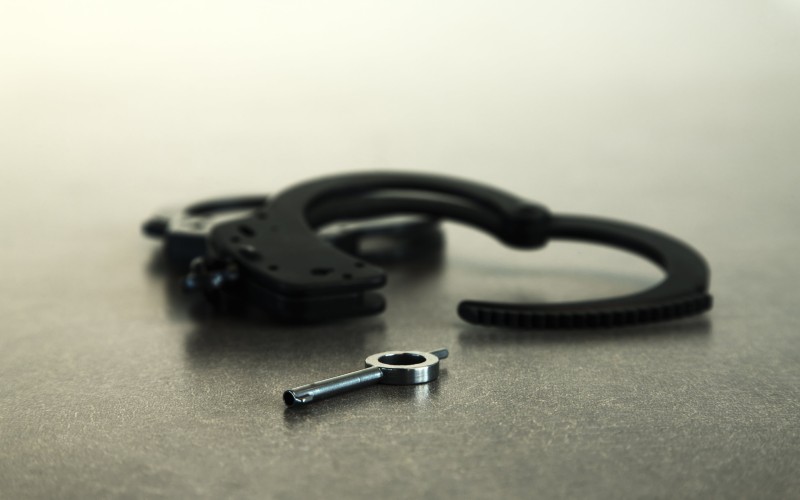
If your child has been charged with a juvenile crime in Texas, feeling overwhelmed and scared for what will happen next is entirely understandable.
Questions rush through your mind while you worry anxiously about your child’s future. You might think, How did this happen? Did I do something wrong in my parenting? You might wonder about what you should do next.
But breathe easy and know you’re not alone. Countless Texas families navigate similar situations every year. While juvenile charges are serious, defenses are available.
By understanding the Texas juvenile justice system and exploring potential defenses with a skilled San Antonio, Texas juvenile crime lawyer, you can actively protect your child’s rights and guide them toward a positive outcome.
To speak with an experienced juvenile criminal defense lawyer, please contact us today.
What to know about the Texas Juvenile Justice System
Unlike the adult system, the Texas juvenile justice system focuses on rehabilitation and restorative justice, not just punishment. It aims to help young people learn from their mistakes and become productive members of society.
For juveniles, this means confidential proceedings, sealed records, and outcomes that prioritize counseling, probation, and support—with detention considered only in specific types of cases. Generally, the type of case and severity of the charge help determine the exact options available.
Seven Potential Defenses to Juvenile Crimes in Texas
While each case is different, exploring different defenses to a crime can be empowering. These strategies can help your child avoid charges, reduce potential consequences, and ultimately guide them toward a more positive future. Below are seven possible defenses a juvenile crimes lawyer may consider.
Mistaken Identity and Alibi
Eyewitness misidentification, or situations where a witness mistakenly identifies someone as the perpetrator of a crime, frequently leads to wrongful convictions. Your lawyer will work to establish an alibi or provide evidence that proves your child was elsewhere during the time of the crime or could not have been present.
They can scrutinize discrepancies in the eyewitness’s description of the perpetrator, such as physical features, clothing, or even the location where the crime took place.
Misinterpretations and Accidental Situations
Miscommunications or unforeseeable events can sometimes lead to criminal charges. Juvenile charges often result from misunderstandings or unexpected incidents, as opposed to deliberate wrongdoing.
Your lawyer may strengthen the defense strategy by showing that your child had no criminal or malicious intent and that the situation was unintentional.
Entrapment
An entrapment defense may be available if police or others influence your child in such a way that the child commits a crime that they would otherwise not have committed.
Adolescents are especially susceptible to peer pressure, which can lead to poor decision-making and impulsive behavior. Proving entrapment requires demonstrating that your child was not predisposed to commit the crime, and they only acted in that manner because of law enforcement’s influence. If you can make this showing, it may result in charges being dropped.
Scrutinizing the Evidence
The prosecution must prove your child’s guilt beyond a reasonable doubt. Your lawyer will meticulously analyze the evidence, challenge its validity and highlight inconsistencies or weaknesses that exist. If there was insufficient evidence to warrant your child’s charge, a lawyer can challenge the charge and potentially get the prosecutor or judge to dismiss the charges.
Procedural Missteps
Did the police violate your child’s rights while they were being arrested or questioned? Were critical pieces of evidence mishandled? Procedural errors can result in the exclusion of evidence or even the dismissal of a case.
For example, if police interrogated your child without informing them of their rights, the statements they made may be inadmissible, weakening or destroying the prosecution’s case.
Mental Health and Disability
Your attorney might be able to present evidence and argue in favor of alternatives like therapy or counseling if a mental health disorder or disability impacted your child’s behavior.
Additionally, your lawyer might be able to claim that the prosecution’s case is weaker because the prosecution failed to take your child’s mental health or disability into account when questioning them.
This can be crucial in reducing the severity of the charges and advocating for a more appropriate resolution that considers your child’s unique needs and circumstances.
Diversion Programs
In some cases, juvenile courts may offer diversion programs that allow your child to avoid formal adjudication. Diversion programs aim to address the underlying issues that may have contributed to your child’s actions, rather than focusing solely on punishment.
These programs often involve educational programs, community service, or counseling. Also, these programs can help avoid adult certification, which can continue a juvenile case into adulthood.
The most effective defense often combines these strategies and is tailored to your child’s particular circumstances. A skilled juvenile crime lawyer can thoroughly investigate the facts and determine the best course of action.
Common Juvenile Crimes in Texas
Juveniles can be charged with a variety of crimes. Some of these crimes are classified as misdemeanors, which are less serious and carry lighter penalties.
Others are classified as felonies, which are more serious and carry heavier penalties. The type and level of the charge will determine the possible defenses and availabile outcomes for your child. Some common juvenile offenses in Texas include:
- Shoplifting,
- Petty theft,
- Marijuana possession or use,
- Drug paraphernalia possession,
- Truancy,
- Underage drinking and driving,
- Misdemeanor assault, and
- Vandalism.
These are just some examples, and your child’s specific charges and penalties can vary greatly depending on the circumstances. With a better understanding of the juvenile crime landscape, you can better prepare for the road ahead and work with your child’s lawyer to develop the most effective defense strategy.
Your Role in Your Child’s Defense
While your lawyer will navigate the legal complexities, your active involvement is instrumental to your child’s well-being and the success of their case. This is a stressful time for your child, and they need your constant support and belief in their ability to overcome this obstacle, even if that may include minor punishment.
Remember to be honest and open with your lawyer. To help your lawyer build the strongest possible defense, provide complete and accurate information, even if it’s difficult.
Don’t hesitate to communicate concerns about your child’s well-being, rehabilitation, or treatment to your lawyer. Your voice matters, and your insights can help your child receive the support they need.
Austin Hagee Law Firm – Your Texas Juvenile Crimes Lawyer
Your family deserves a strong defender. At Austin Hagee Law Firm, our team of experienced Texas juvenile crime lawyers have a proven track record of protecting children’s rights and fighting for fair outcomes.
Led by nationally recognized defense attorney Austin Hagee, we take a holistic approach, considering the legal case, your family, and your child’s well-being at all times. We’ll connect you with valuable resources and support systems to help your family navigate this challenging time and move toward a positive future.
Contact us to schedule a free consultation, today. We’re here to answer your questions, explain your options, and fight for the best possible outcome for your child and your family.
